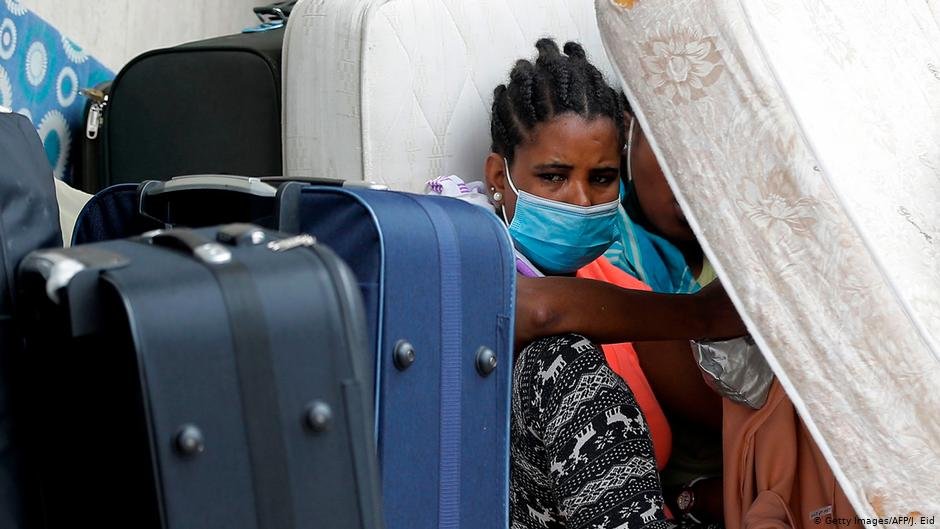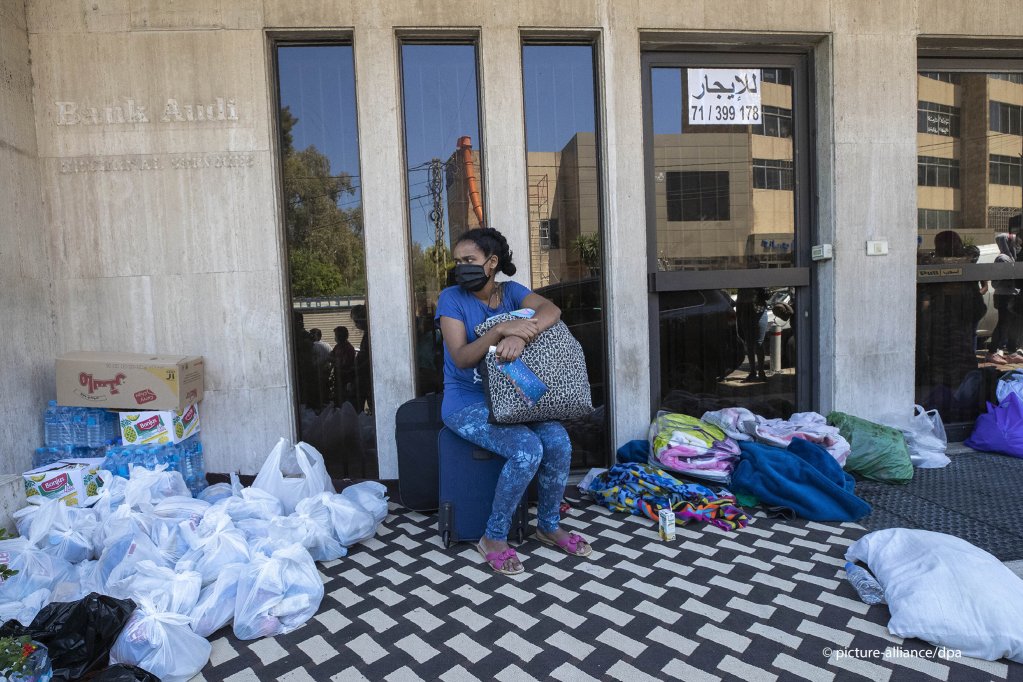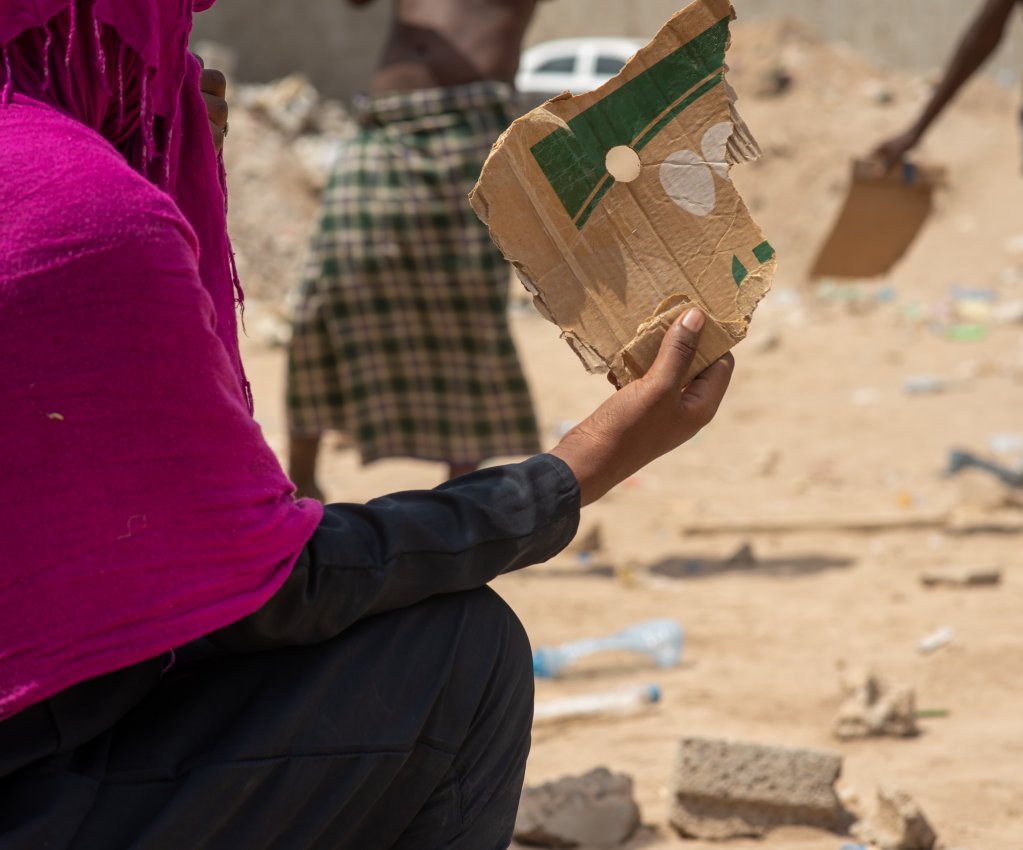The economic repercussions of the COVID-19 crisis have forced many irregular migrants from Ethiopia to return home, where they are faced with destitution on a daily basis. Some turn to sex work as their only option to rise out of abject poverty. Others resort to prostitution to finance their next migration.
Ethiopia is facing a repatriation-driven sex work crisis, according to a report published by the Thompson Reuters Foundation. According to the United Nations, over 15,000 female migrants have returned to Ethiopia in the last 12 months, with many only finding a way to ensure their livelihoods by engaging in prostitution.
The women migrants -- some of whom had been deported back, and some of whom had used voluntary return programs after losing their jobs in Middle Eastern countries like Lebanon in the midst of the COVID-driven economic downturn or in war-torn places like Yemen -- face renewed violence and risk of trafficking, according to local charities.
Solomon Hagos, program director at the Bethsaida Restoration Development Association charity, which focuses on assisting sex workers, told the Thompson Reuters Foundation that COVID-19 may possibly have pushed more returning migrants into the sex trade in the absence of other opportunities; however, there is no official data to prove this trend, he added.

Yenenesh Tilahun, owner of a beauty salon located near Addis Ababa’s red light district and a former migrant herself, also told Thompson Reuters that she had noticed a recent spike in the number of sex workers since the pandemic reached Ethiopia. She said that many of the women were clients at her beauty shop, who had told her that they had returned to the country after their work opportunities abroad had dried up.
"These days, Arab countries are closing their doors … These women have no alternative to sustain themselves when they come back other than entering sex work," she said.
Read more: Detained migrants tortured, killed in Saudi Arabia -- HRW
The cost of survival: six sex acts per day
It is estimated that tens of thousands of Ethiopians travel illegally to the Gulf states and other Arab countries in search of better paid work. Many of them end up being exploited as underpaid maids or as overworked builders on construction sites. In some cases, it is made impossible for them to return to their own countries, as their bosses confiscate their passports.
Those that do return home usually only do so after losing their jobs — only to face poverty and a lack of perspectives in Ethiopia, resorting to illegal trades including prostitution.

In the capital's informal Sebategna red-light district, hundreds of women reportedly rent tiny rooms where they both sleep and run their business. On average, they have to pay just over €6 a day to rent the space, while making as little as €1 for sex.
With some of the women finding themselves unable to procure the six clients they need to even only break even, many prostitutes are reported to have taken to the streets to find men, risking their lives even further as they let the clients decide where they will be taken to provide their services.
Read more: Refugee porn: Where sexual fantasies meet harsh realities
Government shortcomings
While some of the women who have returned to Ethiopia have received at least some government help to pay for their travel back home to their remote home villages, many have deliberately decided to stay in the capital city of Addis Ababa for the time being, where prostitution in one of the few options they feel they have.
Two of the women interviewed by Thompson Reuters meanwhile said that they felt abandoned by the government after returning home -- despite having been lured back by promises of support. It is understood that while the Ethiopian government has systems in place to support regular migrants upon return, the infrastructures to help irregular migrants are less reliable.
The two women also highlighted that most charities had long been forced to stop their activities at the start of the COVID-19 pandemic, leaving them with no one to turn to and with no other option but to go into prostitution.
Read more: Lebanon abolishes 'slave-like' system for foreign domestics
Misguided shame
The Thompson Reuters Foundation reports that many of these women who decided to stay in Addis have said they also felt a sense of shame for returning "empty-handed" to the country after their families had -- in many cases -- supported them with financing their initial migration.
These families reportedly often regard the sending of their daughters abroad as a long-term investment: They find ways to pay for the initial journey by selling off assets or taking up loans, but they later receive a share of the women’s earnings back in remittances, paying off any debts incurred and then benefitting from additional funds.

One woman named Ikram told Thompson Reuters that "it hurts you psychologically when parents invest a lot in you, expecting some return, but you come back empty-handed.
"You're not even able to survive on your own, let alone supporting them ... That's why we end up here."
Read more: Germany continues to deport Ethiopians despite Tigray crisis
No hope, no alternative
While sex work is widespread in Ethiopia, with more than 200,000 women estimated to be engaged in prostitution according to government data, it is also part of the wider human trafficking problem the country faces: Some women decided to engage in prostitution for a while in order to save enough to pay smugglers to take them abroad on irregular migration routes. Others have less of a say in their work, suffering sexual exploitation.

While prostitution is not illegal in Ethiopia, the Thompson Reuters Foundation reports that sex workers report being harassed, beaten, robbed by clients. One sex worker interviewed by the foundation said she had been beaten by a client the night before the interview with the foundation, after he had refused to pay her for her services rendered.
The 28-year-old woman, who was identified only by her first name, Yemisrach, said that she was "staying with the job because I don't have other alternatives."
"I just want to get out of this dirty job ... It does more harm than good," she said.
A vicious cycle
Solomon Hagos meanwhile underlined that helping prostitutes in this kind of predicament was also becoming increasingly difficult. He explained to Thompson Reuters that the lockdown conditions in Ethiopia had made it harder for campaigners like him to contact sex workers like Yemisrach or Ikram to provide the care they needed in this dangerous work climate.
He also told the Thompson Reuters Foundation that returned migrants could be lured back overseas by traffickers, especially if they felt there was no hope for them to get their lives in order back home again. "The returnees will try any means necessary to go back to the Middle East," Hagos said.
Based on a feature by Thompson Reuters
